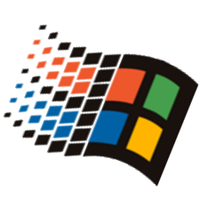OPERATING SYSTEMS
MICROSOFT WINDOWS


>Microsoft Windows is a closed source operating system written in C, C++, and Assembly.
>It was first released November 20, 1985.
>The latest version is Windows 10, relased July 29, 2015.
>Games
>Productivity
>Simplicity
>Restrict software freedoms.
>Windows sends in information about you and your computer daily.
>I'd only recommend it if you REALLY want to play games or need certain applications for work.

>OS X is a closed source (with some open source components) operating system based on UNIX written in C, C++, and Objective-C.
>It was created by Apple Inc. as their primary OS for Apple computers.
>The first releases of Mac OS X from 1999 to 2006 can run only on the PowerPC based Macs of the period.
>The latest version of OS X is 10.10 "Yosemite", which was released to the public on October 16, 2014.
>You can also build an unofficial Apple computer using OS X, which is commonly known as a Hackintosh.
>Simplicity
>Productivity
>Unix-based
>Restricts software freedoms.
>Apple is very restrictive hardware wise, upgrading normally means you have to buy a whole new computer.
>Sends in information about you and your computer to Apple Inc.
>The CEO, Tom Cook, is a homosexual. :^)
>Mainly for long term use, simplicity, and eye-candy.

>GNU/Linux is a Unix-like and mostly POSIX-compliant computer operating system assembled under the model of free and open-source software development and distribution.
>The defining component of Linux is the Linux kernel, an operating system kernel first released on 5 October 1991 by Linus Torvalds
>Linux was originally developed as a free operating system for personal computers based on the Intel x86 architecture, but has since been ported to more computer hardware platforms than any other operating system.
>Linux, in its original form, is also the leading operating system on servers and other big iron systems such as mainframe computers and supercomputers, but is used on only around 1.5% of desktop computers.
>Open Source
>Customization
>Safe
>Free (as in free beer and freedom!)
>Complex (depends on OS)
>To value your software freedoms and to learn more about Linux and UNIX computing. There are many different types of Linux distros, you want to pick a distros based off your preference of how customizable you want your distro to be and the amount of computer knowledge you have. Here is a simple guide on picking a linux distro.
If you need more information on GNU/Linux you can check out the /g/ wiki here.